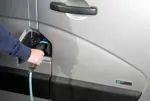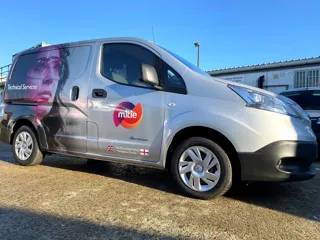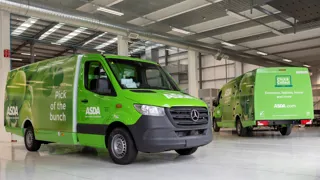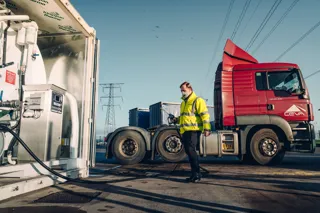A new report jointly created by Shell and Deloitte outlines 22 solutions aimed at addressing the economic, technical, regulatory and organisational factors influencing the road freight sector’s ability to decarbonise.
The report shows that more than 70% of study participants view hydrogen fuel cell electric vehicles and battery electric vehicles as the most viable long term zero-emission heavy duty truck technology, and many believe these trucks will become commercially viable in the next five to 10 years.
“Trucks move virtually everything modern society depends on for daily life and during the current Covid-19 crisis, society has experienced just how critical road freight is in delivering essential goods,” said Huibert Vigeveno, downstream director at Shell.
“However, road freight is currently responsible for around 9% of global CO2 emissions and with demand for road freight services set to double by 2050, urgent action must be taken now to put the sector on a pathway to net zero emissions by then. Fleet companies, truck manufacturers and energy providers have already started investing in low and zero emission solutions, but the sector requires a more robust set of policies and regulations to accelerate change,” he added.
To meet the goal of the Paris agreement, the report found that absolute emissions from road freight need to decline almost 60% by 2050 versus a 2018 baseline, despite an expected doubling of road freight volume over the same period.
Of those involved in the study, 80% perceive a lack of regulatory incentives and the complexity of infrastructure replacement to be major barriers to decarbonisation, while 70% see limited demand from customers as a major barrier.
Although not yet commercially viable, most study participants agreed that the technologies to decarbonise road freight exist, and truck manufacturers are already developing hydrogen fuel cell electric vehicles and battery electric vehicles.
The report recommends that companies should begin prioritising the replacement of trucks and buses in viable shortrange and urban duty cycles using available zero emission hydrogen fuel cell electric vehicles and battery electric vehicles.
Tarek Helmi, partner, Deloitte Netherlands, said: “To decarbonise harder-to-abate sectors, including road freight, requires an understanding of the motivations of different ecosystem players and ways to align interests.
“Leaders throughout the road freight sector are clearly making this a priority and there are many reasons to be optimistic about the progress that can be made. It is important to collaborate and start making impact now. Deloitte is committed to working closely with the industry participants to enable and accelerate change.”
The “Getting into Gear” and “Shell’s Route Ahead” reports are available to view here: www.shell.com/DecarbonisingRoadFreight.




















Login to comment
Comments
No comments have been made yet.